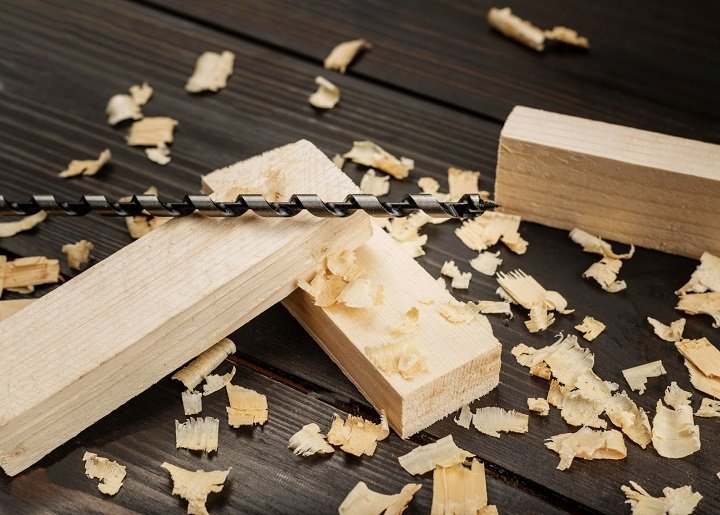Woodworking is a fulfilling and creative hobby that allows you to transform raw materials into beautiful, functional pieces. Whether you’re interested in building furniture, crafting decorative items, or pursuing a more artistic avenue, woodworking offers endless possibilities. However, starting can feel daunting. You do not have to start from the beginning; there are other things, such as how to filter out dust. For example, a dust collection system baghouse can effectively manage larger quantities of sawdust and debris, keeping your workshop clean and organized. This guide will provide essential tips and advice to confidently embark on your woodworking journey.
Understanding the Basics
Get to Know Your Tools
Before diving into woodworking, familiarize yourself with the basic tools you’ll need. Essential tools for beginners include:
- Hand Tools: Chisels, hand saws, and a hammer.
- Power Tools: A drill, circular saw, and jigsaw.
- Measuring and Marking Tools: A tape measure, square, and marking gauge.
Investing in quality tools is crucial. Good tools make your work easier and enhance the quality of your projects. If you’re on a budget, consider purchasing used tools or starting with a few essentials and expanding your collection over time.
Choose Your First Project Wisely
When starting, select a simple project to help you build your skills without overwhelming you. Consider projects like a basic shelf, a birdhouse, or a small table. These practical items will help you practice essential techniques like measuring, cutting, and assembling.
Learn Basic Techniques
Familiarize yourself with fundamental woodworking techniques, such as:
- Measuring and Cutting: Accurate measurements are the foundation of any woodworking project. Learn how to make precise cuts using both hand and power tools.
- Joining: Understanding various joining techniques, like butt joints, dovetails, and mortise and tenon joints, will significantly enhance the strength and aesthetics of your projects.
- Finishing: Finishing is what gives your project a professional look. Learn about different types of finishes, such as stains, paints, and sealants, and how to apply them.
Setting Up Your Workshop
Creating a Safe Workspace
A safe working environment is paramount in woodworking. Make sure your workspace is well-lit and organized. Invest in safety gear, including goggles, ear protection, and a dust mask. A clean workspace helps prevent accidents and makes your work more enjoyable.
Dust Collection Systems
Woodworking generates significant dust and debris, which can harm your health if inhaled over time. A dust collection system is essential for maintaining a clean and safe workspace. Consider consulting with an industrial dust collector supplier for advice on the right system for your needs. A China wholesale horizontal mounted cartridge dust collector could be a practical choice for smaller workshops, as it efficiently captures fine particles and improves air quality.
Gaining Confidence Through Practice
Start Small, Then Expand
As a beginner, don’t rush into complex projects. Start with small, manageable tasks to build your confidence and skills. As you become more comfortable with your tools and techniques, gradually take on more challenging projects.
Join a Community
Connecting with other woodworkers can be invaluable for learning and inspiration. Join local woodworking clubs or online forums where you can share your work, ask for advice, and learn from others’ experiences. Watching tutorial videos and following woodworking blogs can provide useful insights and techniques.
Be Patient and Embrace Mistakes
Mistakes are a part of the learning process. Don’t be discouraged by setbacks; view them as opportunities to grow and improve. You’ll develop your skills and confidence with practice, leading to better and more intricate projects.
Consider Tailor-Made Solutions
Consider seeking tailor-made solutions if you encounter specific challenges in your woodworking projects. Companies like Tysum, an industrial dust collector supplier, provide tailor-made dust collectors for any challenging applications. These customized solutions can help optimize your workspace and enhance your productivity.
Being an air filtration company worldwide, Tysum has developed a manufacturing process focused on boosting efficiency and reducing costs and waste. This dedication to top-notch production leads to dust collector solutions that your customer base will value and endorse.
Conclusion
Woodworking is a rewarding hobby that combines creativity, skill, and precision. You can confidently embark on your woodworking journey by familiarizing yourself with tools, techniques, and safety measures. Remember to start with simple projects, be patient, and continuously seek to learn and improve. Implementing an effective dust collection system is crucial for maintaining a clean and safe workspace, as it protects your health by minimizing airborne dust particles. So gather your tools, roll up your sleeves, and get started on your woodworking adventure!
Read also the new articles:
The Ultimate Guide to Hiring Remote Developers: From Job Postings to Onboarding
